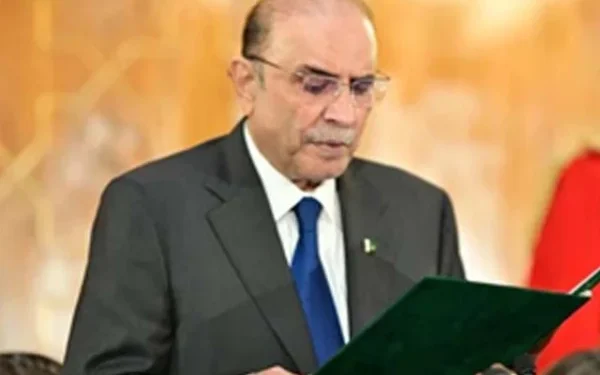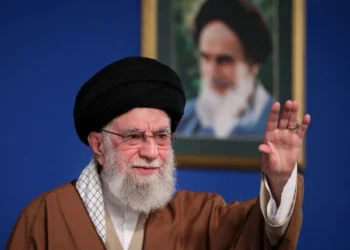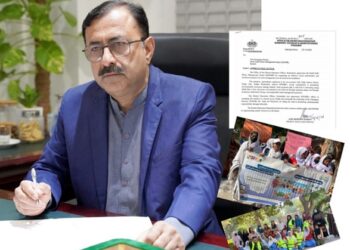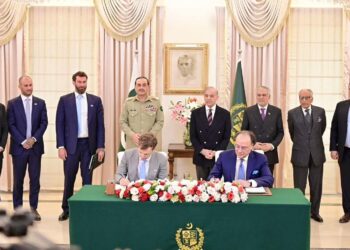Islamabad – On the occasion of World Day Against Child Labor, President Asif Ali Zardari delivered a powerful message underscoring the urgent need for collective efforts at both national and international levels to eliminate child labor. His statement, released on June 12, served as a stark reminder of the millions of children worldwide who are still subjected to labor, exploitation, and denied their right to education and a safe childhood.
The President’s address emphasized that protecting children from labor is not only a moral and social obligation but also a legal and developmental imperative for any progressive society.
Understanding the Significance of World Day Against Child Labor
Observed annually on June 12, the World Day Against Child Labor was launched in 2002 by the International Labour Organization (ILO) to raise awareness and foster activism aimed at eradicating child labor in all its forms. The day draws global attention to the plight of millions of children who are deprived of their basic rights due to economic hardship, lack of education, and systemic failures.
According to the ILO and UNICEF, as of 2023, 160 million children are engaged in child labor globally — 63 million girls and 97 million boys. The Asia-Pacific region, including Pakistan, remains one of the most affected areas.
President Zardari’s Message: A Reminder of Shared Responsibility
In his statement, President Zardari said:
“This day is a reminder of our collective responsibility to protect children from labor and exploitation.”
He emphasized that the issue of child labor transcends national boundaries and requires global solidarity, coordinated policies, and long-term commitment. Addressing the problem, he said, is not the duty of governments alone — it also involves employers, civil society, educators, the media, and families.
Child Labor: A Persistent Challenge in Pakistan
While Pakistan has made progress in terms of legislation and policy, child labor continues to be a serious issue in the country. It is estimated that over 12.5 million children in Pakistan are engaged in labor, many in hazardous environments such as brick kilns, agriculture, domestic work, carpet weaving, and even mining.
Contributing factors include:
- Poverty
- Lack of access to quality education
- Cultural acceptance of child labor
- Weak enforcement of laws
President Zardari acknowledged these challenges but reiterated the state’s determination to address them head-on.
Government Actions to Eradicate Child Labor
The President highlighted a number of concrete steps taken by the Pakistani government to combat child labor and child exploitation:
1. Legislation and Policy Measures
Pakistan has enacted various laws aimed at curbing child labor, including:
- The Employment of Children Act (1991)
- The Punjab Prohibition of Child Labour Act (2016)
- The Sindh Prohibition of Employment of Children Act (2017)
These laws set minimum working age requirements and prohibit children from being employed in hazardous occupations.
2. Establishment of Protection and Rehabilitation Systems
Special Child Protection Units and rehabilitation centers have been created in multiple provinces. These institutions are tasked with:
- Rescuing children from labor
- Providing psychological and social support
- Enabling access to education and vocational training
3. National Institutions for Child Welfare
Pakistan has established various national-level bodies such as:
- The National Commission on the Rights of Child (NCRC)
- Provincial Child Protection Bureaus
These institutions work toward safeguarding the rights of children and ensuring compliance with international conventions like the United Nations Convention on the Rights of the Child (UNCRC).
Appeal to Stakeholders: A Multi-Sector Approach
Employers
President Zardari called upon employers and business owners to ensure strict compliance with child labor laws. He urged them to:
- Verify the age of employees
- Maintain workplaces free from child exploitation
- Report instances of child labor to the relevant authorities
Parents and Guardians
He appealed to parents not to sacrifice their children’s future for short-term financial relief. Instead, he encouraged them to:
- Enroll children in schools
- Seek assistance from government welfare programs where necessary
- Avoid withdrawing children from school for labor purposes
Educators
Addressing educational institutions and teachers, President Zardari emphasized their pivotal role in:
- Identifying students at risk of dropping out
- Engaging with families to keep children in school
- Offering flexible education options for working children
Media and Civil Society
The media was encouraged to raise awareness and highlight success stories of child rehabilitation, while NGOs, philanthropists, and civil society were urged to support vulnerable families.
“Only through combined efforts can we create a society where every child has access to education, safety, and dignity,” the President remarked.
The Global Dimension: Conflict, Displacement, and Exploitation
President Zardari extended his concerns beyond Pakistan’s borders, particularly highlighting the plight of children in war-torn Gaza.
“Thousands of children have been displaced, injured, or orphaned due to aggression by occupying forces,” he stated.
He added that these children now face increased risks of:
- Hunger and malnutrition
- Disease
- Exploitation and forced labor
The President urged the international community to step up humanitarian efforts, provide justice, and ensure the protection of children caught in conflict zones. He emphasized that global child labor cannot be addressed in isolation and must include children suffering in war, displacement, and crisis.
The Way Forward: Eliminating Child Labor by 2025
The ILO and other global organizations have set a target of eliminating all forms of child labor by 2025 under Sustainable Development Goal (SDG) 8.7. To meet this goal, nations like Pakistan need to:
- Improve data collection and child labor monitoring
- Expand access to free and quality education
- Enhance enforcement mechanisms
- Integrate social protection programs for vulnerable families
- Strengthen international cooperation
President Zardari’s message aligns with these goals and reiterates Pakistan’s commitment to creating a child-labor-free future.
Conclusion: A Bright, Safe, and Educated Future for Every Child
President Asif Ali Zardari concluded his message by urging all stakeholders to take concrete and practical steps to eliminate child labor and build a world where every child can learn, grow, and thrive.
The President’s remarks serve as both a call to action and a moral reflection — reminding us that no child should be forced to work at the expense of their education, health, and future.
As the world commemorates World Day Against Child Labor, Pakistan renews its pledge to continue the struggle against child exploitation — with the hope that one day, every child will enjoy a life of dignity, security, and opportunity.

























